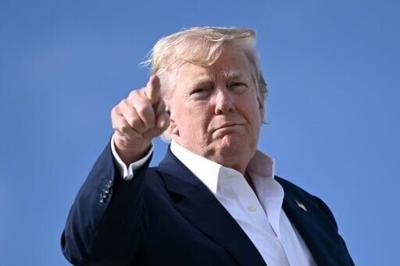President Donald Trump’s assertive stance on trade has undeniably led to increased tariffs on US exports, a move that aligns with his “America First” agenda. However, amidst these bold economic maneuvers, leading experts largely concur that the foundational principles and structures of the global trade system remain surprisingly resilient, avoiding a dramatic overhaul of the established postwar order.
The pursuit of greater global wealth through reduced duties has been a cornerstone of international economic policy for decades, culminating in institutions like the World Trade Organization (WTO). This crucial body, with its 166 member nations, now orchestrates an impressive 98 percent of global commerce, symbolizing a collective commitment to open markets and collaborative prosperity.
Economists widely agree that lower tariffs are intrinsically beneficial for a nation’s own prosperity, fostering competitive markets and consumer choice. Richard Baldwin, a distinguished professor at the IMD Business School, underscores this point, emphasizing that reciprocal tariff reductions among nations cultivate a more vibrant and interconnected international economy.
Despite this prevailing consensus, Trump has actively pursued a disruptive trade war, contending that persistent deficits with other countries signify an unfair advantage and that the United States is being exploited. His frequent assertion that “tariff” is the “most beautiful word in the dictionary” became a defining mantra during his successful 2024 re-election campaign.
The immediate repercussions of these protectionist measures for American importers often involve difficult choices: either to seek more expensive domestic alternatives or to pass on increased costs directly to consumers. Pascal Lamy, a former director-general of the WTO, candidly described these tariffs as a “Pyrrhic victory” for Trump, suggesting limited long-term strategic benefit.
Lamy further noted the administration’s specific focus on deficits in goods, while largely overlooking the rapidly expanding services sector – a critical and increasingly dominant component of global trade. He provocatively suggested that Trump’s approach to international economics reflected a “medieval view,” emphasizing an outdated perspective on modern commerce.
Conventional economic wisdom strongly indicates that imposing tariffs, by making goods more expensive, ultimately stifles overall economic growth for all parties involved. Experts like Baldwin contend that unilaterally raising tariffs is not a viable strategy for national enrichment, a concept largely abandoned by economic theory many years ago.
Crucially, the global trading system has not been entirely upended because other nations have largely maintained their commitment to free trade principles. With US imports constituting only about 13 percent of total global imports, a significant majority of international commerce continues unaffected, driven by a desire for ongoing engagement and interdependence.
This global commitment is further evidenced by ongoing multilateral efforts, such as Japan, South Korea, and China’s pledge to accelerate trade accord negotiations, and Brazil’s President Lula da Silva advocating for a Mercosur-Japan deal. These initiatives highlight a continued worldwide push for integrated markets, even as the shadow of more severe US protectionist measures looms.






Leave a Reply